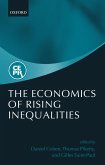There have been numerous accounts exploring the relationship between institutions and firm practices. However, much of this literature tends to be located into distinct theoretical-traditional 'silos', such as national business systems, social systems of production, regulation theory, or varieties of capitalism, with limited dialogue between different approaches to enhance understanding of institutional effects. Again, evaluations of the relationship between institutions and employment relations have tended to be of the broad-brushstroke nature, often founded on macro-data, and with only limited attention being accorded to internal diversity and details of actual practice. The Handbook aims to fill this gap by bringing together an assembly of comprehensive and high quality chapters to enable understanding of changes in employment relations since the early 1970s. Theoretically-based chapters attempt to link varieties of capitalism, business systems, and different modes of regulation to the specific practice of employment relations, and offer a truly comparative treatment of the subject, providing frameworks and empirical evidence for understanding trends in employment relations in different parts of the world. Most notably, the Handbook seeks to incorporate at a theoretical level regulationist accounts and recent work that link bounded internal systemic diversity with change, and, at an applied level, a greater emphasis on recent applied evidence, specifically dealing with the employment contract, its implementation, and related questions of work organization. It will be useful to academics and students of industrial relations, political economy, and management.
Dieser Download kann aus rechtlichen Gründen nur mit Rechnungsadresse in A, B, BG, CY, CZ, D, DK, EW, E, FIN, F, GR, HR, H, IRL, I, LT, L, LR, M, NL, PL, P, R, S, SLO, SK ausgeliefert werden.









